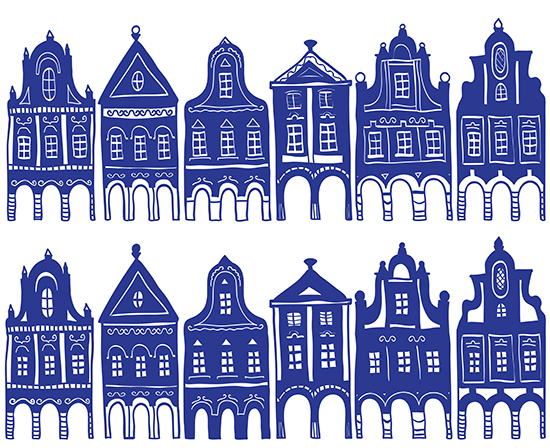Since July 2016, the municipality of Amsterdam has issued its land in perpetual leasehold. Perpetual leasehold means that the leasehold has an indefinite term, instead of fixed-term contracts. This is a major improvement over the original continuous leasehold system, because this often meant a huge increase in price after the lapse of the contract. This uncertainty disappears with the new leasehold system. Leaseholders get the option to switch to perpetual leasehold. Your ground rent will then only be calculated once: on the basis of the land value at that moment. You can choose to buy off the ground rent in one lump sum or to pay a fixed amount annually. That amount then only increases with inflation and is no longer tied to the value of your house, as was the case with the old system. Amsterdammers with a permanent leasehold have the option of converting this into a perpetual leasehold. In fact, if an application was made before 8 January 2020, this was possible under very favorable conditions. Have you submitted the application, but have not yet made a decision about whether or not to buy off the lease in one lump sum? Let’s discuss the possibilities and uncertainties regarding leasehold!
1. Is switching mandatory?
No, leaseholders do not have to switch. You can also choose not to switch now, but make this decision later. Your perpetual leasehold is determined at the moment you make the choice, based on the WOZ value and BSQ (neighborhood street quote) that apply at this time. The price could be considerably higher than it is now, given the current favorable conditions, but this cannot be determined with certainty. Naturally, your personal financial situation also plays a role in this decision. We can imagine that you are looking for a sparring partner for this complicated subject, as you will soon have to make a choice. Would you like to know the best option for you? Contact Von Poll Real Estate!
2. What choices do I have?
Despite the complicated leasehold system, as a homeowner you ultimately have three options.
1. Completely pay off the leasehold in one go: You buy off the current and future lease, so that everything is sorted in perpetuity.
2. Set an amount for the future leasehold: you adhere to the current contract until it ends, and already secure the amount of lease you will pay in the future.
3. Pay off the future ground rent: you adhere to the current contract until it ends, and pay off the future ground lease forever.
3. How will this affect my mortgage?
It is still unclear how lenders will deal with the new leasehold system. Just like you, they want certainty. Is the leasehold contract of a house about to expire at the time of purchase? Then a lender can decide, given the risk of a – possibly much higher – new lease, that a (much) lower mortgage provision is necessary. With a perpetual leasehold, this uncertainty will no longer exist. However, with an annual leasehold, the amount you pay for this will be deducted from the maximum allowable housing costs, so that your maximum mortgage will be lower.
4. How do I make a choice that suits me and my situation?
Which choice is best for you depends mainly on your financial circumstances. Is it possible to pay off the leasehold perpetually for a relatively affordable amount of, say, €5,000? That would be an attractive option, especially with the low interest rates at the moment. But not everyone is willing or able to pay this sum in one go. Moreover, there is a good chance that many leaseholders will have to pay a much higher amount, between €10,000 and €100,000. Paying this much may not be an option for them. In addition, the new canon may not come into force soon: the contracts usually run for 50 years, so if a contract is not ending soon, you will only profit decades from now. Chances are the current leaseholder no longer lives in the house by then. Switching to perpetual leasehold in which the leasehold is fixed for the future is a good alternative. This gives future owners more security and the advantage of favorable conditions, which save them a lot of money. This may translate into a higher selling price. But: do not forget to take the notary costs for this option into account – approximately € 1,000.
5. Will I ever see that money back?
That is the most important question: will homeowners get back the thousands of euros they have spent on buying off the leasehold through a higher sale price of the house? Given the greater insight into the leasehold price, the differences between switching or not switching should be reflected in the price. Given the current market, however, we do not see the difference reflected one-to-one in the selling price. People have long been happy that they can even buy a house in Amsterdam at all and are therefore less critical of the leasehold conditions. Whether that will change in the future, we cannot say, but from experience we do know that, when a leasehold expires and a revision of the price is due, this will certainly play a role in the sale. However, we can state with certainty that the choice of switching to perpetual lease on favorable conditions, with the relatively small investment of approximately € 1,000 for notary costs, will be recouped with the sale.
Conclusion
Determining whether or not you should to pay off the leasehold is not an easy choice. The matter is complicated and the decision can have different effects for each individual. And because at a certain moment you will have to make a choice – whether or not to pay it off – our experts are at your service to discuss your situation. Contact Von Poll Real Estate: we like to help you think!
